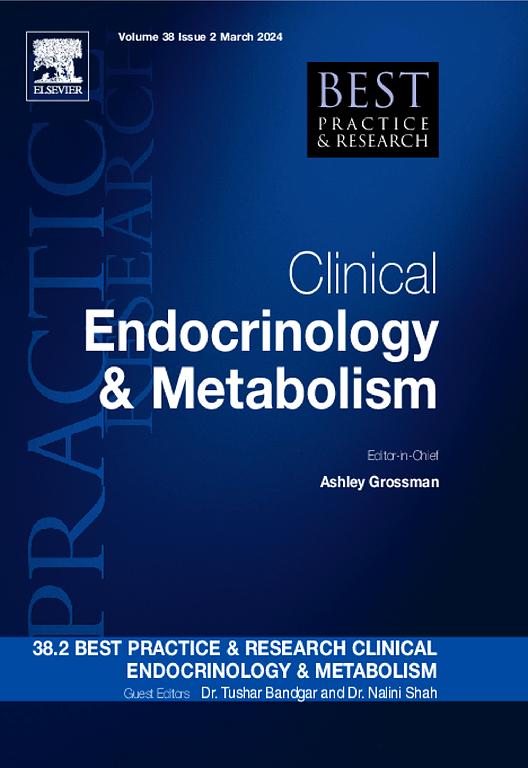性别发育差异对护理质量改善的影响。
IF 6.1
1区 医学
Q1 ENDOCRINOLOGY & METABOLISM
Best practice & research. Clinical endocrinology & metabolism
Pub Date : 2025-07-01
DOI:10.1016/j.beem.2025.102016
引用次数: 0
摘要
欧洲和世界各地的合作努力旨在提高对性发育差异个体(DSD)的护理质量。医疗保健领域的质量管理可确保患者获得循证且始终如一的高质量护理。医疗保健质量分为三个相互关联的组成部分:结构、过程和结果。质量指标作为代理,证明是否达到了良好的质量,并可用于基准目的。本文重点介绍了结构、过程和结果质量的分类如何应用于DSD患者的护理。我们检讨基准测试的实施情况,以持续评估和改善国家层面对残疾人士的照顾,以及残疾人士研究如何为国际层面的基准测试提供信息。本文章由计算机程序翻译,如有差异,请以英文原文为准。
Care quality improvement in differences of sex development
Collaborative efforts across Europe and the world aim to improve the care quality provided to individuals with differences of sex development (DSD). Quality management in healthcare ensures that patients receive evidence-based and consistently high-quality care. Healthcare quality is categorised into the three interrelated components: structure, process and outcome. Quality indicators serve as proxies to demonstrate whether good quality is achieved and can be used for benchmarking purposes. This article highlights how the categories of structure, process, and outcome quality can be applied to the care for individuals with DSD. We review the implementation of benchmarking to continually assess and improve the care for people with DSD at a national level and how DSD studies may inform benchmarking at an international level.
求助全文
通过发布文献求助,成功后即可免费获取论文全文。
去求助
来源期刊
CiteScore
11.90
自引率
0.00%
发文量
77
审稿时长
6-12 weeks
期刊介绍:
Best Practice & Research Clinical Endocrinology & Metabolism is a serial publication that integrates the latest original research findings into evidence-based review articles. These articles aim to address key clinical issues related to diagnosis, treatment, and patient management.
Each issue adopts a problem-oriented approach, focusing on key questions and clearly outlining what is known while identifying areas for future research. Practical management strategies are described to facilitate application to individual patients. The series targets physicians in practice or training.

 求助内容:
求助内容: 应助结果提醒方式:
应助结果提醒方式:


